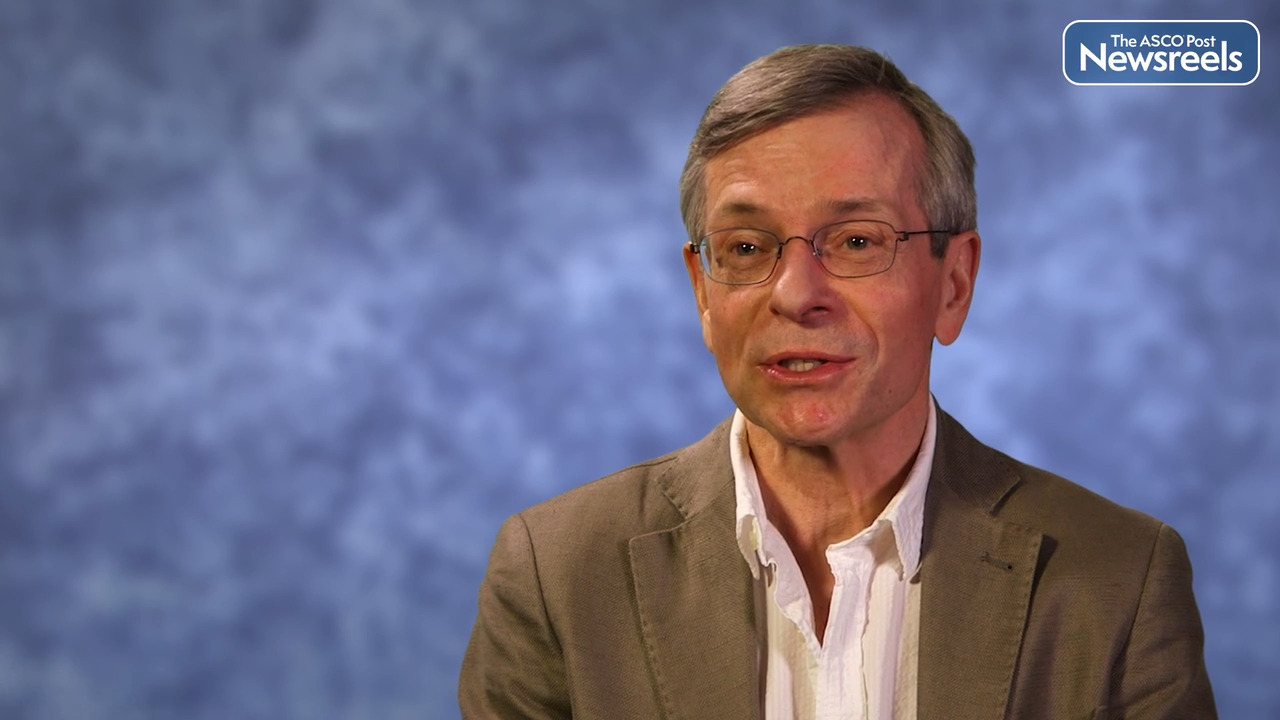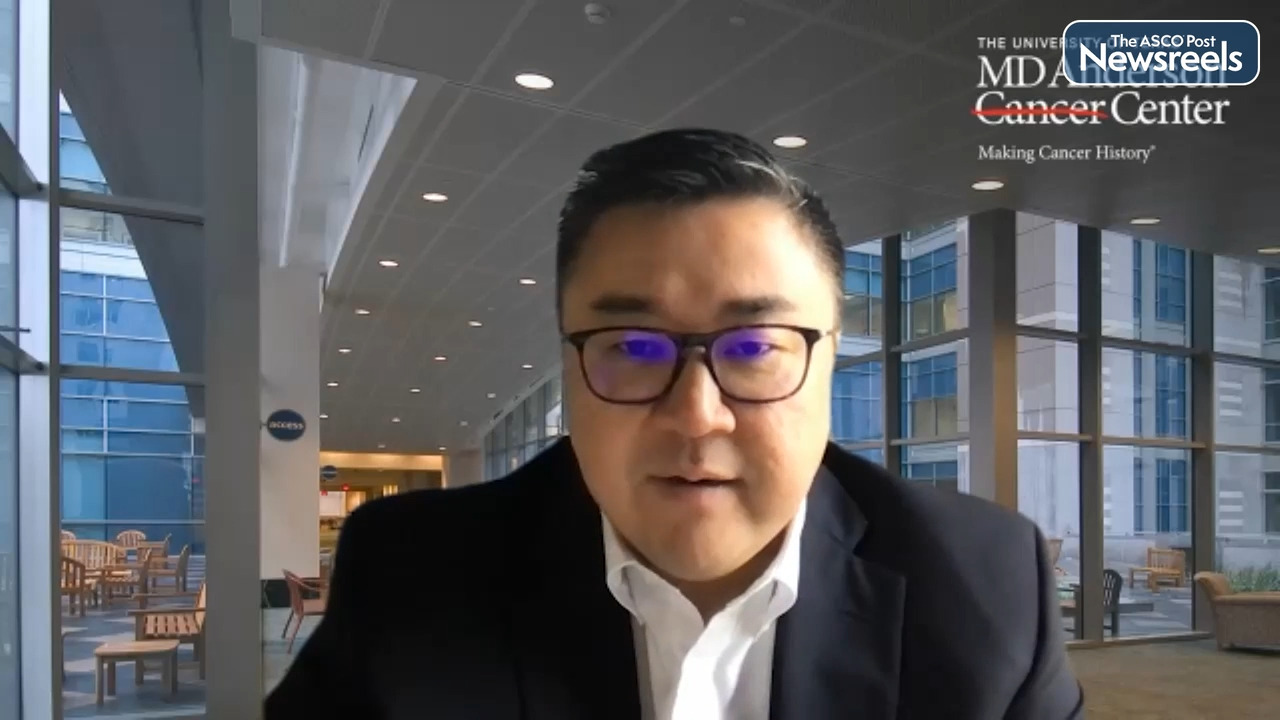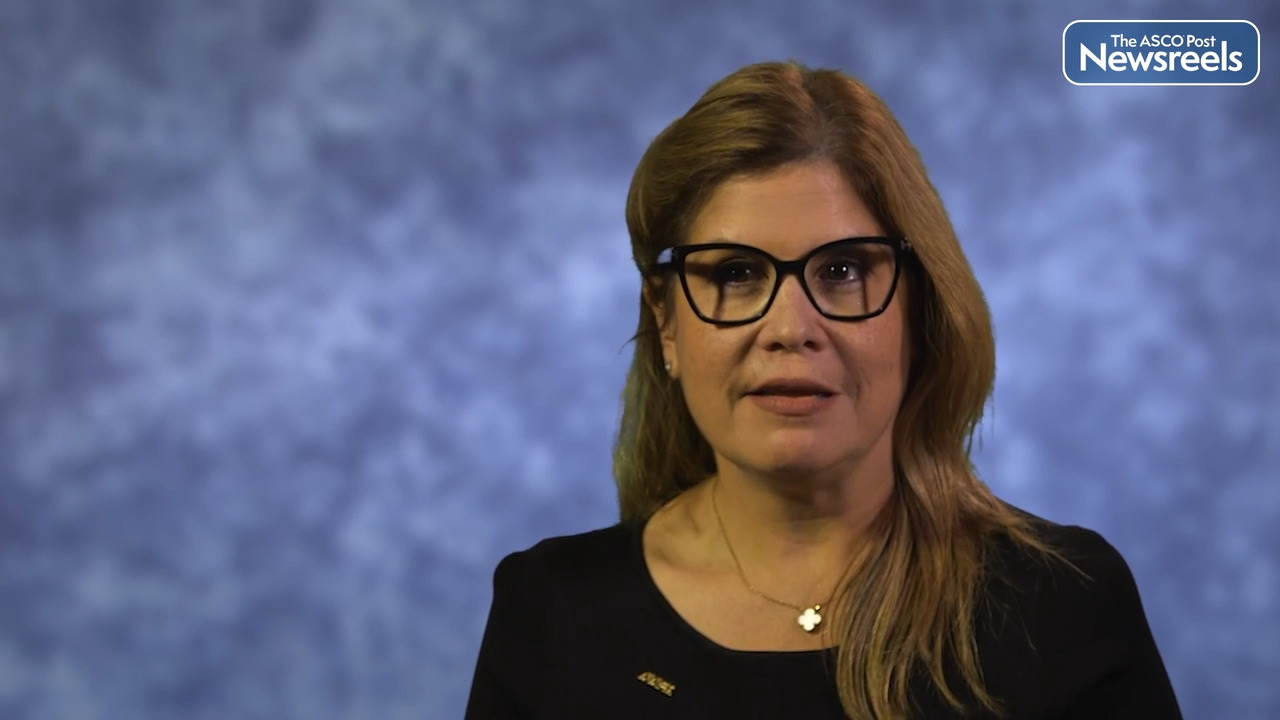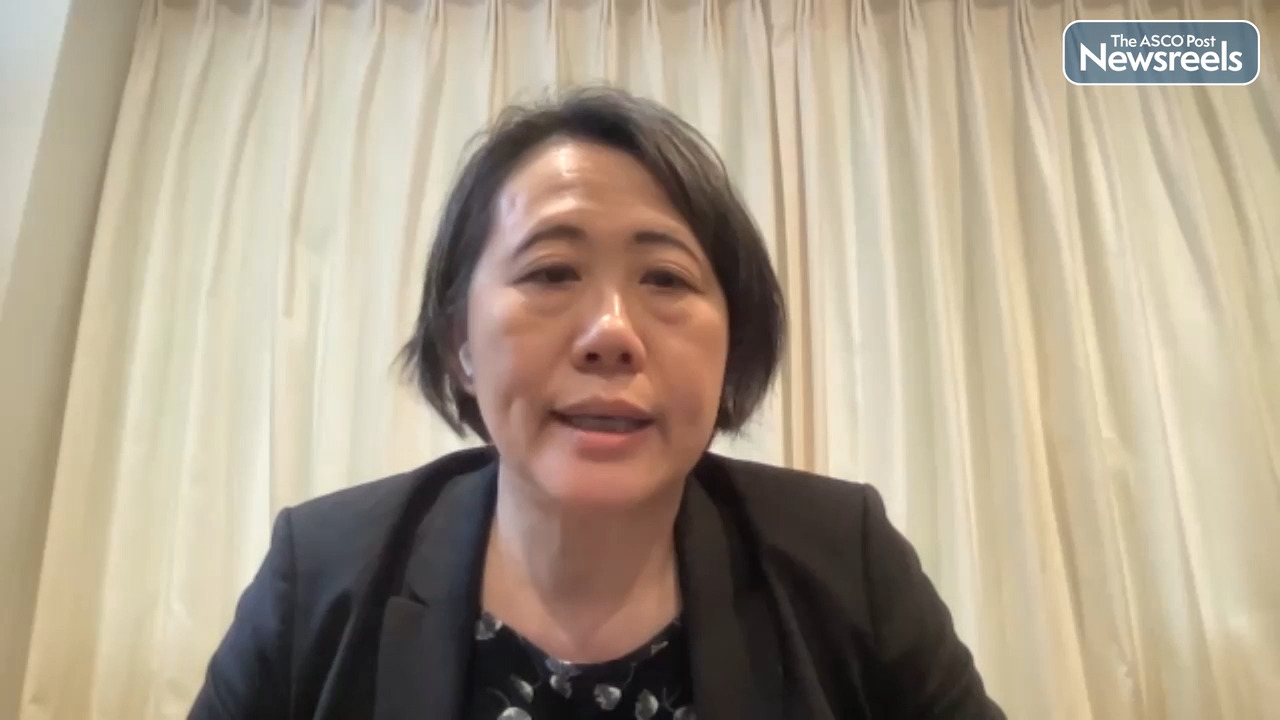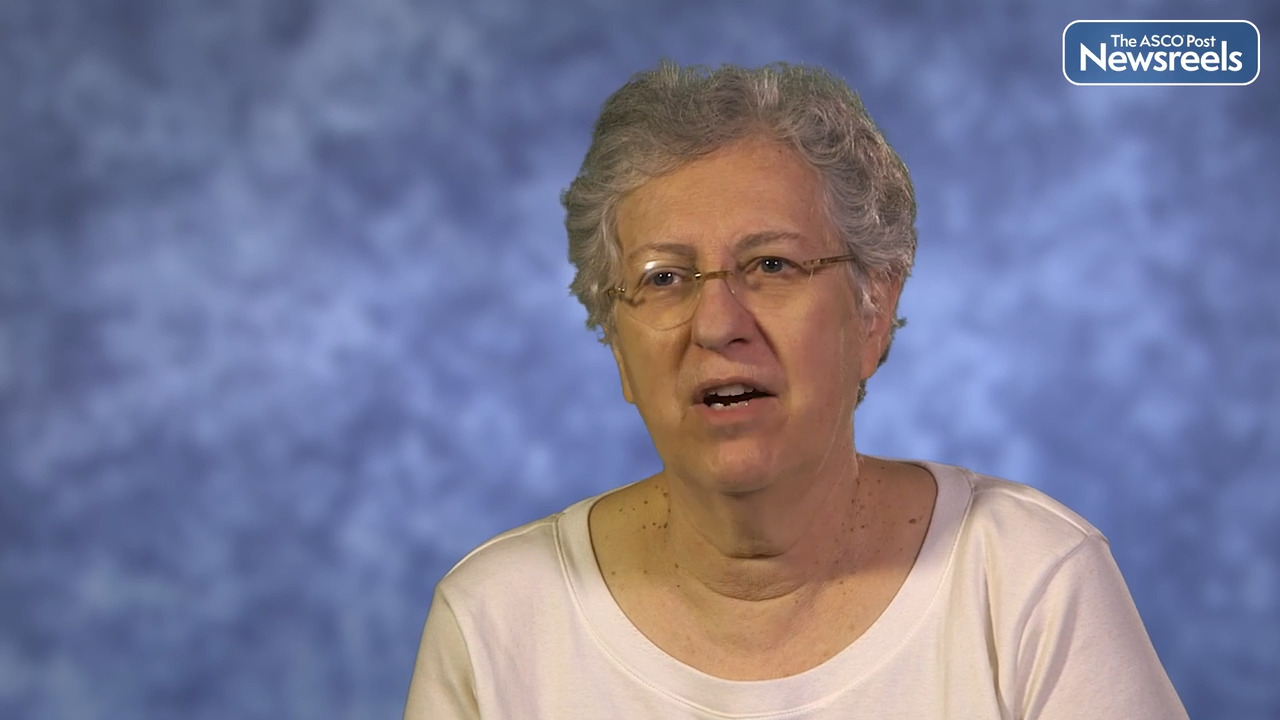Silvia C. Formenti, MD, on Adapting Radiation Therapy to Immune Checkpoint Blockade
AACR Annual Meeting 2022
Silvia C. Formenti, MD, of Weill Cornell Medicine, discusses research on the best way to integrate radiotherapy with immune modifiers, which might require changes in standard radiation oncology practices. Variables such as the type of treatment fields, the inclusion of draining nodal stations, the degree of exposure of circulating immune cells, the type of dose fractionation, and the timing of radiotherapy during immune checkpoint blockade all can affect the success of immunoradiotherapy combinations (Abstract SY43).
Related Videos
The ASCO Post Staff
John B.A.G. Haanen, MD, PhD, of the Netherlands Cancer Institute, discusses findings from a phase I study designed to test the safety and efficacy of the CARVac (CAR-T cell-amplifying RNA vaccine) strategy to overcome poor CAR T-cell stimulation and responses in patients with CLDN6-positive advanced solid tumors. Men with testicular cancer in particular showed encouraging responses. Overall, some patients showed long-term CAR T-cell persistence more than 150 days post infusion. Partial responses seemed to deepen further over time (Abstract CT002).
The ASCO Post Staff
Timothy A. Yap, MBBS, PhD, of The University of Texas MD Anderson Cancer Center, discusses how research is building on the success of first-generation PARP inhibitors in the clinic and the potential of novel potent PARP1-selective inhibitors, which may lead to improved patient outcomes. Given recent advances in drug discovery, says Dr. Yap, we now can go beyond PARP by drugging other key DNA damage response targets in the clinic, including ATR, WEE1, DNA-PK, RAD51, POLQ, and USP1.
The ASCO Post Staff
Marcia R. Cruz-Correa, MD, PhD, of the University of Puerto Rico Comprehensive Cancer Center, discusses a way to possibly transform cancer outcomes by teaming up basic scientists, clinical researchers, and community advocates to work together, decode the complexity of cancer, and find points at which to intervene in the development of tumor cells. One strong focus is on communities disproportionately affected based on their genomic ancestry, geographic location, and ethnicity (Abstract PL06).
The ASCO Post Staff
Lillian L. Siu, MD, of Canada’s Princess Margaret Cancer Centre, discusses biomarker-driven precision cancer medicine, the optimal sequencing of immunotherapy (IO) with standard treatments in curative settings, IO targets beyond PD-1/PD-L1 and combinatorial strategies, and next-generation adoptive cell therapies (Abstract PL06).
The ASCO Post Staff
Patricia M. LoRusso, DO, of the Yale University School of Medicine, discusses how patients may benefit in the coming decade from discoveries about agents that target KRAS, and how important the approval of sotorasib turned out to be, as well as other agents in the research pipeline. Dr. LoRusso also talks about the scientific advances in tackling inhibition (Abstract SY20).
